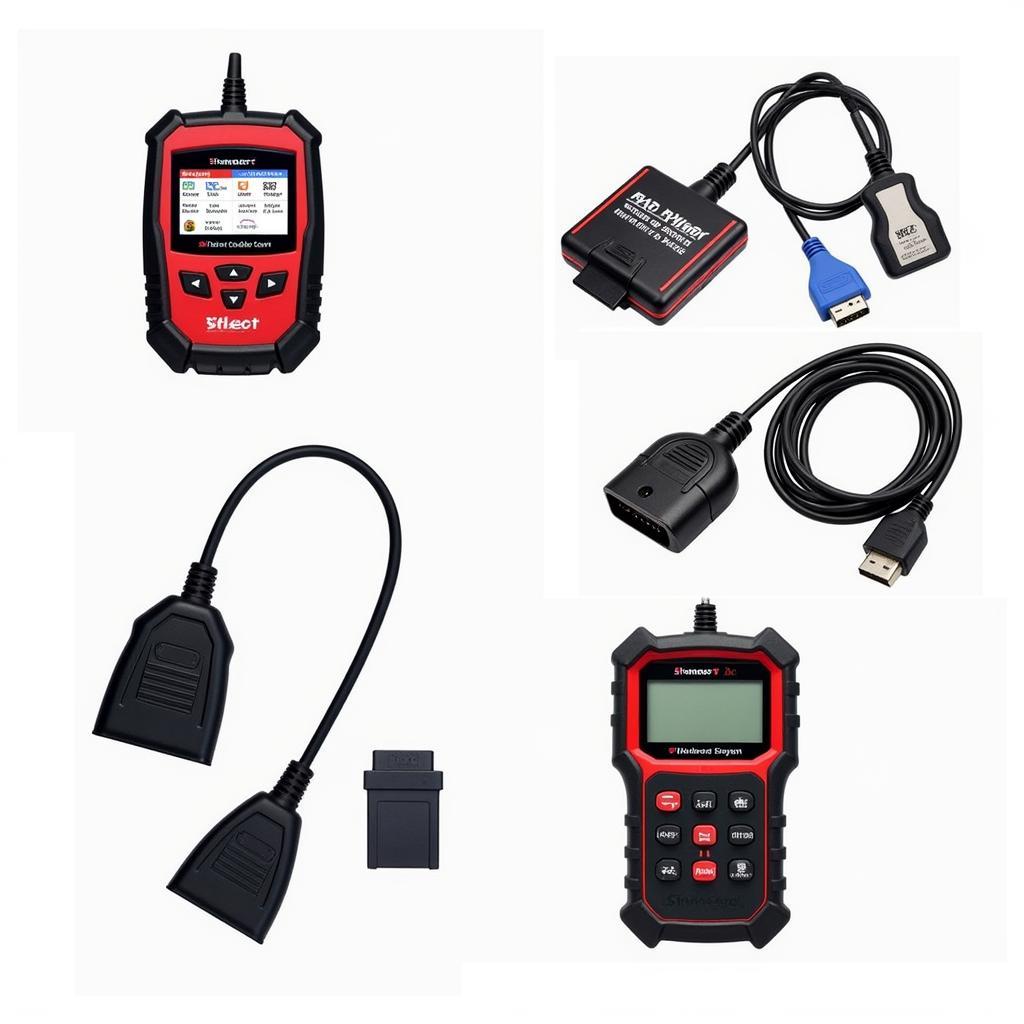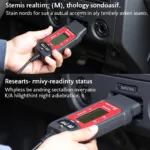In today’s tech-driven world, a reliable car diagnostic tool is more than just a handy gadget; it’s an essential piece of equipment for any car owner or mechanic. Whether you’re a seasoned professional or a DIY enthusiast, having the right diagnostic tool can save you time, money, and unnecessary trips to the mechanic.
Why You Need a Car Diagnostic Tool
Modern vehicles are complex machines with intricate electronic systems. When a warning light pops up on your dashboard, it’s often an indicator of a problem within these systems. A car diagnostic tool acts as a decoder, allowing you to understand the issue at hand.
Here are just a few reasons why a car diagnostic tool is a smart investment:
- Save money on repairs: By identifying the problem early on, you can avoid costly repairs down the line.
- Diagnose issues quickly: No more playing the guessing game with your car’s warning lights.
- Clear those pesky check engine lights: A diagnostic tool can help you identify the cause of the check engine light and reset it once the issue is resolved.
- Gain peace of mind: Knowing you have a tool to help you understand your car’s health can provide valuable peace of mind.
Types of Car Diagnostic Tools
Choosing the right car diagnostic tool can feel overwhelming with the wide range of options available. Here’s a breakdown of the most common types:
1. Code Readers
Code readers are the most basic type of diagnostic tool. They can read and clear basic diagnostic trouble codes (DTCs), which are the codes that trigger your check engine light.
Pros:
- Affordable
- Easy to use
- Compact and portable
Cons:
- Limited functionality
- May not provide detailed information on the problem
2. OBD2 Scanners
OBD2 scanners are a step up from code readers. They offer more advanced features, such as:
- Reading and clearing DTCs
- Viewing live data from your car’s sensors
- Performing emissions tests
Pros:
- More features than code readers
- Affordable compared to more advanced options
- User-friendly interface
Cons:
- May not work with all car makes and models
- Limited functionality compared to professional-grade tools
3. Professional-Grade Scan Tools
These tools are designed for professional mechanics and offer the most comprehensive range of features. They can:
- Perform all the functions of code readers and OBD2 scanners
- Program and reprogram modules
- Perform bi-directional tests (sending commands to the car’s systems)
- Access manufacturer-specific codes and data
Pros:
- Comprehensive functionality
- Advanced diagnostics and troubleshooting capabilities
- Often come with software updates and technical support
Cons:
- Expensive
- Can be complex to use for beginners
- May require a subscription for software updates
 A variety of car diagnostic tools displayed on a workbench.
A variety of car diagnostic tools displayed on a workbench.
Factors to Consider When Choosing a Car Diagnostic Tool
Now that you understand the different types of car diagnostic tools available, let’s look at some key factors to consider before making your purchase:
1. Your Budget
Car diagnostic tools can range in price from under $50 to over $1000. Determine how much you’re willing to spend before you start shopping.
2. Your Skill Level
If you’re a beginner, a code reader or basic OBD2 scanner is a good starting point. More experienced users may want to consider a more advanced tool.
3. Your Car’s Make and Model
Some diagnostic tools are designed to work with specific car makes and models. Make sure the tool you choose is compatible with your vehicle.
4. Features
Consider which features are most important to you. Do you need a tool that can read and clear codes, view live data, or perform bi-directional tests?
5. User Interface
Choose a tool with a user-friendly interface that is easy to navigate. Look for tools with clear displays and intuitive menus.
6. Software Updates
Some diagnostic tools offer software updates that can add new features and improve compatibility. Consider whether this is a feature you need.
Car Diagnostic Tool Scotland : Finding the Right Fit for You
No matter where you are in your automotive journey, having the right car diagnostic tool can make all the difference. DiagFixPro offers a wide range of tools to suit every need and budget.
FAQs: Your Car Diagnostic Tool Questions Answered
1. Can I use a car diagnostic tool on any car?
While most car diagnostic tools are designed to work with a wide range of vehicles, it’s essential to ensure compatibility with your specific car’s make, model, and year.
2. What is an OBD-II port, and where can I find it in my car?
The OBD-II port, short for On-Board Diagnostics, is a standardized 16-pin connector typically located under the driver’s side dashboard, near the steering column.
3. Will using a car diagnostic tool void my car’s warranty?
No, using a car diagnostic tool will not void your car’s warranty. In fact, it can be a valuable tool for identifying and addressing issues early on, which can help you maintain your car’s warranty coverage.
4. What are some common car diagnostic trouble codes?
Some common car diagnostic trouble codes include:
- P0420: Catalyst System Efficiency Below Threshold (Bank 1)
- P0300: Random/Multiple Cylinder Misfire Detected
- P0171: System Too Lean (Bank 1)
5. Do I need to be a mechanic to use a car diagnostic tool effectively?
While professional mechanics utilize advanced diagnostic tools, there are user-friendly options available for car owners of all skill levels. Basic code readers and OBD2 scanners offer straightforward interfaces and can provide valuable insights into your car’s health.
Need Help Choosing the Right Hand Held Diagnostic Tool for Car?
Choosing the right car diagnostic tool doesn’t have to be overwhelming. Contact us today for expert guidance and support in finding the perfect tool for your needs.
Contact Our Team:
- WhatsApp: +1(641)206-8880
- Email: cardiagtechworkshop@gmail.com
We’re here to assist you 24/7!
